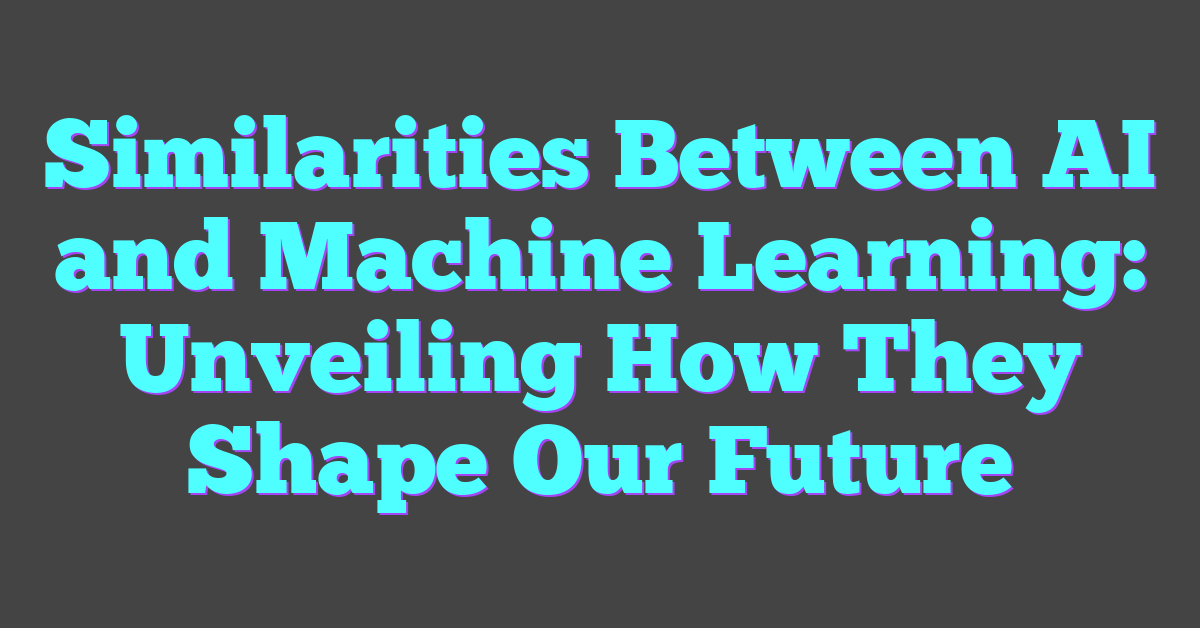In recent years, artificial intelligence has made leaps and bounds, transforming industries and automating tasks once thought to require human ingenuity. This rapid advancement has led to a burning question: can AI replace programmers? While AI tools can generate code and streamline development processes, the debate is far from settled.
AI might handle repetitive coding tasks efficiently, but programming is more than just writing lines of code. It involves problem-solving, creativity, and understanding complex systems—all areas where human programmers still excel. So, is the future of programming one where humans and AI collaborate, or will AI eventually take over entirely? Let’s explore this intriguing possibility.
Understanding AI in Programming
AI has significantly impacted various fields, and programming is no exception. Analyzing the current role of AI in software development and the innovations driving these changes will provide more clarity.

The Current Role of AI in Software Development
AI tools automate repetitive coding tasks, allowing developers to focus on complex problem-solving. Code completion tools, for example, use machine learning to suggest code snippets and auto-complete code, increasing productivity. GitHub Copilot, using OpenAI’s Codex, is a noteworthy example.
Debugging and testing are also becoming more efficient through AI. Tools like DeepCode analyze codebases to identify bugs and suggest fixes. These tools reduce the time spent on manual code reviews and ensure higher code quality.
AI further assists in project management by predicting project timelines and resource allocation. Tools like Forecast use AI to analyze past project data and create accurate project plans.
AI Innovations Changing Programming
Recent innovations in AI are revolutionizing programming. Natural language processing (NLP) models are enabling code generation from plain English descriptions. OpenAI’s Codex can translate user instructions into viable code, making programming accessible to non-experts and speeding up development for seasoned programmers.
Reinforcement learning algorithms are optimizing resource management and scheduling in cloud computing environments. For example, Google’s DeepMind has worked on optimizing data center energy usage, leading to more efficient and cost-effective operations.
The integration of AI in continuous integration and continuous deployment (CI/CD) pipelines is another emerging trend. AI-driven tools can predict potential deployment issues, thus minimizing downtime. Companies like Facebook and Netflix leverage machine learning models to ensure smoother deployments and quicker rollbacks in case of failures.
These innovations showcase how AI is not just supporting programmers; it’s enhancing their capabilities and easing the workflow.
Can AI Replace Programmers?
The growing impact of AI in software development raises a critical question: Can AI replace programmers? Understanding the current advancements and limitations provides insight into this discussion.
Advancements in AI That Simulate Coding Tasks
AI tools already automate many coding tasks. Code completion tools, like GitHub Copilot, use machine learning to assist developers by suggesting code snippets. These tools analyze the context of the existing codebase to offer relevant suggestions, speeding up the development process.
Debugging AI tools also show promise. They detect bugs and suggest fixes, helping maintain software integrity. Reinforcement learning optimizes cloud computing resources, resulting in efficient code execution. Natural language processing (NLP) allows developers to write code through simple language commands.
Limitations of AI in Complex Programming
Despite the advancements, AI faces challenges in handling complex programming. Human intuition and experience are essential for intricate problem-solving and architectural decisions. AI lacks the creativity and deep understanding required for abstract thinking and domain-specific knowledge.
Context awareness is another limitation. While AI can handle repetitive tasks well, it struggles with tasks demanding a comprehensive understanding of project-specific constraints and user requirements. Ethical considerations and nuanced decision-making further highlight the irreplaceable role of human programmers.
Thus, even with rapid advancements, AI complements but doesn’t fully replace human programmers.
Implications for the Programming Profession
The integration of AI in programming is reshaping the profession. Advancements in AI tools benefit programmers by increasing productivity and simplifying tasks. This section delves into how programmers can adapt and addresses ethical considerations.
How Programmers Can Adapt to AI Integration
Programmers can enhance their skill sets by understanding AI algorithms and machine learning models. Acquiring knowledge in these areas enables them to leverage AI tools effectively. For example:
- Continuous Learning: Enroll in online courses on AI and ML from platforms like Coursera and edX.
- Practical Experience: Experiment with AI frameworks such as TensorFlow and PyTorch.
- Collaborative Skills: Work in multidisciplinary teams, combining programming, data analysis, and AI expertise.
Ethical Considerations in AI Deployment
Ethical issues arise with AI deployment in programming. It’s crucial to consider the following:
- Bias Mitigation: Programmers should understand the sources of bias in AI models and employ strategies to minimize them, ensuring fair and unbiased AI applications.
- Transparency: Developing transparent AI systems enables users to understand how decisions are made, fostering trust and accountability.
- Privacy: Adhering to data privacy laws like GDPR ensures that AI tools respect user data and maintain confidentiality.
Including these ethical considerations in AI deployment helps create responsible and trustworthy AI systems, benefiting both programmers and society.
The Future of AI and Programming
The integration of AI into programming signals a transformative shift in how software is developed and maintained.
Potential Developments in AI Capabilities
AI is set to redefine programming by refining its capabilities. First, AI-assisted code generation tools will become more sophisticated, producing higher-quality code with less human intervention. Additionally, AI will advance in bug detection, significantly reducing time spent on debugging. For instance, tools like DeepCode and Kite already use AI to identify and suggest fixes for coding errors. Machine learning models will evolve, providing enhanced predictive analytics in project management, helping to foresee project bottlenecks and resource requirements. As AI continues to learn from vast datasets, it will take on more complex tasks, potentially automating aspects of software design and architecture.
How Companies Are Preparing for AI Advancements
Companies are proactively adapting to AI advancements to stay competitive. They invest heavily in training programs that equip employees with AI and machine learning skills. For example, companies like Google and IBM offer internal AI training modules to keep their workforce updated. Additionally, businesses are increasingly incorporating AI frameworks like TensorFlow and PyTorch into their development processes, leading to more efficient workflow integration. Collaborative tools that blend human and AI input are also on the rise, facilitating seamless team collaboration. Firms are prioritizing ethical AI deployment, ensuring transparency and reducing biases, reflecting a commitment to responsible AI practices.
Conclusion
AI is undoubtedly reshaping the programming landscape by automating repetitive tasks and boosting productivity. However, it still falls short when it comes to the nuanced and creative aspects of coding. The future looks promising as a partnership between human programmers and AI, where both can leverage their strengths. Programmers who stay ahead by learning about AI algorithms and ethical practices will thrive in this evolving field. Companies are already on this path by investing in training and ethical AI deployment. Embracing this synergy could lead to more innovative and efficient software development.
Frequently Asked Questions
How is AI impacting programming today?
AI is significantly impacting programming by automating coding tasks and enhancing productivity. It helps with tasks like code generation, bug detection, and predictive analytics, making software development more efficient.
What tasks does AI excel at in programming?
AI excels at automating repetitive coding tasks, generating code snippets, detecting bugs, and providing predictive analytics. It streamlines processes that traditionally required substantial manual effort.
Can AI handle complex programming tasks?
Currently, AI struggles with complex programming tasks that require human intuition and creative problem-solving. These tasks still necessitate human involvement for effective solutions.
What is the future of programming with AI?
The future of programming is envisioned as a collaboration between humans and AI. While AI will handle automation and optimization, humans will focus on complex problem-solving and ethical considerations.
How can programmers adapt to AI integration?
Programmers can adapt by understanding AI algorithms, engaging in continuous learning, and being mindful of ethical considerations in AI deployment. Staying updated with AI advancements is crucial.
How are companies preparing for AI in programming?
Companies are investing in training programs, incorporating AI frameworks, and prioritizing ethical AI deployment. These steps ensure their workforce is equipped and responsible in handling AI integration.
What ethical considerations are important in AI programming?
Ethical considerations include ensuring AI deployment is fair, transparent, and does not perpetuate bias. Programmers must prioritize responsible practices to align with societal values and norms.
Will AI replace human programmers?
AI is unlikely to fully replace human programmers. Instead, it will augment their capabilities by handling repetitive tasks and providing analytical insights, allowing humans to focus on more complex and creative aspects of programming.



